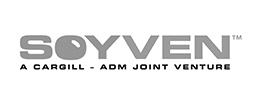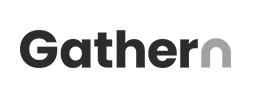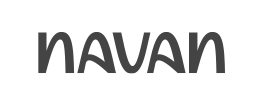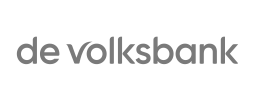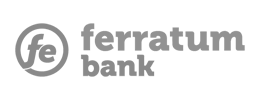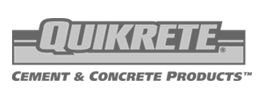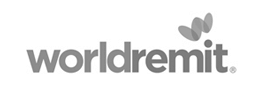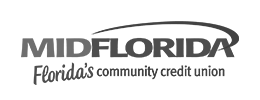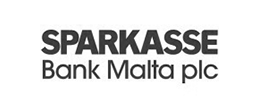Trust and transparency: the challenges around reconciliation of cryptocurrency transactions
How cryptocurrency works
The famous Bitcoin (and cryptocurrency, for that matter) definition ascribed to John Oliver says: “Everything you don’t understand about money, combined with everything you don’t know about computers.”
The prolific rise in interest in the world of cryptocurrencies and digital assets have changed the way consumers approach digital commodities, assets and strategic investment instruments. With market capitalization above $2 trn (often with sharp fluctuations), cryptocurrencies are a phenomenon with its own gravity in the global finances, promising skyrocketing returns and transforming industries by removing the intermediaries. They are becoming mainstream, more accessible for a wider circle of businesses and individuals, who leverage them in their investment portfolio or as a flexible payment method.
Cryptocurrencies might be the future, replacing traditional legal tenders, yet maybe still obscure for the general public today. On one hand, cryptocurrencies have provided greater peer-to-peer (P2P) transactions that are accessible in far more markets, and on the other, have disrupted the financial services industry and pushed the boundaries of innovation to challenge traditional payment services. The cryptocurrencies ecosystem is fledging, but being widely accepted requires better understanding of its inner workings and settling some arguments around transparency and accountability of crypto transactions. So how can businesses utilize these digital assets with confidence and build their data platforms to gain a competitive edge?
New players in the cryptocurrency ecosystem turn to data reconciliation technology
Cryptocurrency exchanges, alternative investment platforms, emerging providers of cryptocurrency payment solutions for consumers and businesses would soon face challenges solved successfully by advanced reconciliation solutions such as ReconArt.
A broadening range of financial instruments harnessing cryptocurrency assets for credit, saving and investment are being devised and their proliferation is yet to gain momentum. The concerns around digital assets custody are yet to be addressed. Institutional investor are cautious to step in the cryptocurrency market, largely because of uncertainties around safely depositing their investment with intermediaries and how exactly they can be held accountable for misuse or losses.
Interactions with the traditional forms of payments and exchange would bring up familiar problems around currency exchange differences, service fees allocation, interest and dividend payments, charge-backs, etc. The seamless experience for the user must be supported by robust reconciliations routine accommodating the smooth switching between payment methods and covering for many complex exceptions scenarios. Reconciliation solutions can handle high volumes and complexities in cryptocurrency trading, as well as help with technology and operations to support business growth and minimize operational risk.
Time is also of essence. Trading currently is all about timing the market. Another major advantage of blockchain technology is the enablement of real-time transactions with no lag between the initiations and the confirmation. The payments in cryptocurrencies for goods and services are expected to increase as the anticipation for digital asset positions appreciation in the long run persists. Reconciling crypto-portfolios with multiple positions on a daily basis with speed and precision to spot risk situation requires an advanced matching and reconciliation solution.
Trust, accountability, and legal implications
Cryptocurrencies have peculiar reputational issues – still perceived as rouge currencies, hardly backed by actual value, used by hackers and criminals to bypass the state sanction and create a parallel universe where trade and exchange operations run unchecked. Cryptocurrencies can be accepted only after transparency is improved, transaction data is verified from multiple independent sources / parties, and the crypto infrastructure auditability is endorsed. The crypto must be decrypted.
One of the advantages of crypto transactions is the distributed ledger concept – transaction verification is independent from a single centralized agent, however authoritative. The real challenges surrounding blockchain based transactions and cryptocurrencies lies within its anonymity – as cryptocurrency transactions are not regulated by a central bank it means that different jurisdictions will treat them differently. Data reconciliation can play a key role in helping businesses stay compliant, mitigate risks and promote transparency.
Crypto assets are also far from being globally unified. Data reconciliation can be hard to manage for payment platforms looking to regulate their transactions and ensure data integrity. As third-party providers would handle all kinds of data formats, this would enable businesses with an additional layer of security and ensure their operations are within requirements dependent on the geography, exchange platform, and type of instrument. Data reconciliation allows businesses to extract accurate data and reliable information that promotes transparency, add valuable insights, speed up business processes, and eventually reduce costs.
Regulatory bodies indicate that they have turned the corner and are catching up on cryptocurrency regulations around taxing the capital gains, crypto investments brokerage, and even the introduction of national digital currencies in the long run. In order to achieve global expansion, crypto facilitators must be able to meet regulatory requirements across hundreds of jurisdictions. Platforms facilitating cryptocurrency transactions are subject to licensing regimes at national level. The main objective is to establish transparent operational controls, robust reporting, and sound risk management policies. The legal and regulatory implications will increasingly pressure businesses to enhance their reporting transparency and internal controls through the implementation of best practices in data reconciliation.
For crypto transaction facilitators data reconciliation and verification will play an essential role. It’s imperative to have the technology in place to ensure quality data is being captured and reported within the regulatory guidelines of the operating jurisdiction. And as financial services institutions rely on reporting trading data on a daily, quarterly or annual basis to demonstrate data integrity for regulators, having a robust and efficient reconciliation procedure helps strengthen an organization’s agility and governance. Firms should not risk regulatory scrutiny when it comes to erroneous or unidentified data. Establishing a clear roadmap of how data is captured and creating an end-to-end workflow of data is also crucial to standardize the reconciliation process and safeguard operations.
Data integrity and reporting requirements
Blockchain requires sequential data reconciliation models where reconciliation is a key part of the transaction and trade process. While blockchain-based platforms allow data to be transferred in a distributed manner, it poses the question of how data controllers can trace back transactions and impose liabilities that may concern regulatory implications such as GDPR.
Cryptocurrencies are also exposed to market volatility, driven by speculative flash buys and sales, often by large financial institutions – meaning that investors who trade cryptocurrencies require real-time visibility of their holdings. This is one of the obvious scenarios where advanced data reconciliation technology can deliver instant visibility and address some of the risk (perceived or actual) widely associated with the ownership of those assets.
Digital assets and trade platforms can lead to a variety of concerns on topics such as tax and reporting, covering liquidity thresholds, segregation of client accounts, regulatory specific by business lines. Besides filtering through thousands of data points and transactions, blockchain-based solutions add specific complexities in the data reconciliation process, such as the treatment of fees and exchange differences, for example.
ReconArt has the ability to create complex matching and update rules, as the automatic resolution of all mismatches and the automatic classification of risk-carrying breaks are essential to the integrity of the trading and payment processes. With specialized functionality for reconciliation between trades and positions, companies can have trusted view on their portfolios aggregated from multiple platforms, including crypto-wallets and exchanges.
A special ReconArt feature first published on Bobsguide (now Infinite Intelligence) – the ultimate fintech resource, an innovative online platform that connects the providers of fintech solutions with the financial services professionals who need them.
Read the article here as well.

 follow our blog
follow our blog
